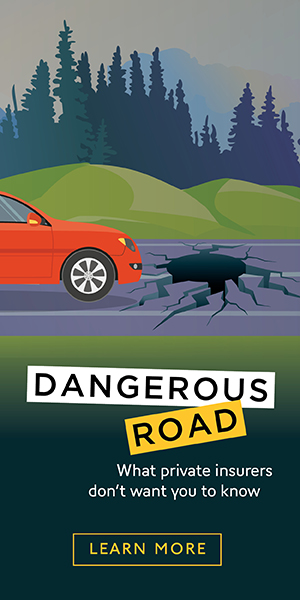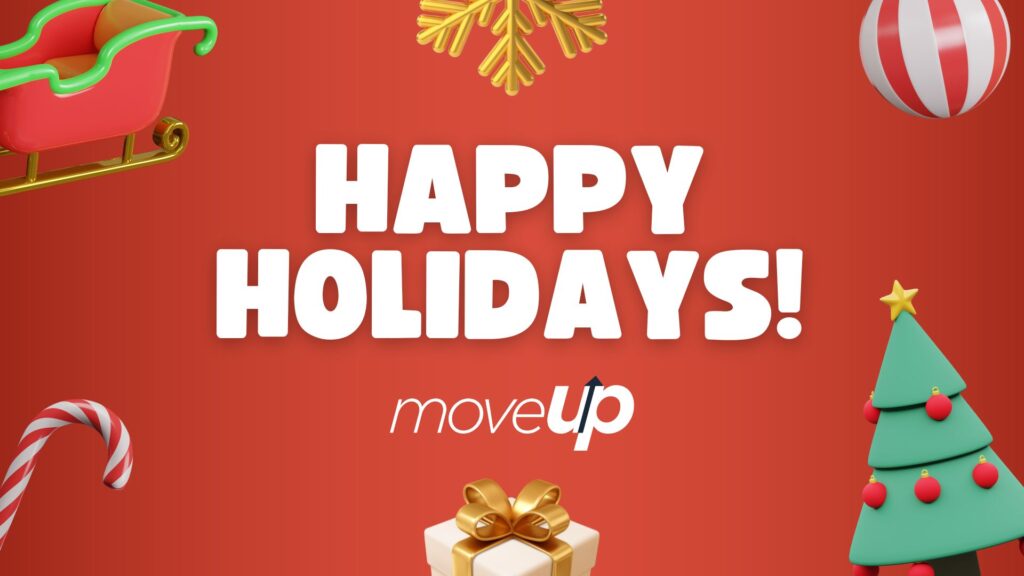Private insurance lobbyists have been clamouring for an opportunity to reap profits from basic car insurance for decades so their recently-launched assault campaign on B.C.’s public car insurance system is no surprise.
But since B.C. only requires getting mandatory basic insurance coverage from ICBC, why wouldn’t everybody choose to go with a private insurer for their optional coverage if they truly can offer the better rates? We spoke to an insurance broker to get their perspective.
Brian So is an independent Vancouver-based broker who specializes in life insurance but also helps clients find a wide range of insurance products including travel, home, and auto insurance. With years of experience in the market, including working at other broker firms prior to becoming independent, Brian is speaking only to his own experience and not on behalf of the broker industry.
In this candid conversation, he reveals the reason that brokers often don’t bother quoting customers on private car insurance options is two-fold: it’s not better for the driver, and it’s not better for the broker.
MoveUP: What is the role of the broker?
Brian: Our job is to not only present you with different insurance options, and that includes choice of different companies you can go to, but mostly it’s to explain what you’re paying for and what the coverage means.
MoveUP: Can people choose to bypass the broker and go directly to the insurance company?
Brian: In some cases, yes, but insurance companies can’t handle that capacity. If you were to entirely eliminate all brokers, that would mean ICBC would need to hire thousands across the province for the sole purpose of handling insurance sales. And the private insurance companies would have an even tougher time trying to do that. Even though some of these insurance companies are big entities, their local presence can be minimal especially in rural communities. Most of the time when you’re handling claims with them, you’re not dealing with someone local. You’re dealing with someone working at a call centre outside the province, maybe even outside Canada.
MoveUP: Why not have online renewal and let people handle it themselves?
Brian: The key concern is that, in people’s attempt to find a cheaper price, they will end up purchasing insufficient insurance to cover their needs and that leaves them vulnerable. Brokers undergo extensive training and are licensed. This can’t be replaced with an automated online transaction.

If it’s a simple renewal where you’re getting the exact same coverage as you had the year before, that’s something that can probably be moved online. The only thing that online renewals may not be able to handle is identity verification. Whenever I help a customer renew their insurance, I’m required to check their identification so I can verify they are buying for who they say they are. Otherwise you can run into issues related to fraud.
But if you’re changing any part of your coverage, or you have questions about what your coverage entails, that’s when you will want to talk with your broker. Sometimes your life situation changes. You’ve bought a new car, you’ve changed addresses, or you’ve changed jobs and your travel distance now is different. All those things can affect your premiums, and suddenly it’s not just a simple renewal.
I remember helping a new customer once with their renewal. When I asked them why they weren’t receiving the experienced driver discount, they told me they didn’t know about it. It turns out the previous brokers they had used never bothered looking into it because they just walked in and asked for the exact same coverage. That experienced driver discount helped them save a few hundred dollars especially since they had no previous claims.
Would an automated online renewal system be smart enough to review all the different components? If it can’t, you risk potentially having a lot of drivers being undercharged or overcharged.
MoveUP: Do brokers get more commission selling ICBC coverage or selling private insurance coverage?
Brian: That’s a good question, and the answer is that it varies. But generally, as a broker, the arrangement actually works out better both for us as the broker or brokerage firm, and our customers, to stick with ICBC.
For all basic insurance, we get a fixed fee of $14. Where the differences are, and where brokers make their money, is on optional coverage.
Our commission with ICBC is tied to your driver rating. That’s the number that indicates you risk level according to ICBC. The lower your number – the lowest it can get is 0.410 – the higher our commission rate is. You’re also getting the best rate at that lower number. If your number is at 1.000 or higher, you’re paying more because your risk level is significant greater, but we’re also making much less at that point.
On the other hand, with private insurance companies, we get a set percentage. That set percentage is not as high as where ICBC tops out for the best drivers, but it’s close to it. That might sound like a better deal for us especially if we could sell more optional coverage to the drivers at the higher end of the risk scale but, in reality, those people aren’t the ones the private insurance companies take on as customers because they’re a bigger liability.
It’s not even worth quoting private insurance coverage for those people because they’d be paying significantly more, and that’s if they managed to get coverage at all. I have requested quotes from private insurance companies for some clients and, often, it’s ‘thanks, but no thanks.’
MoveUP: What about the best of the best drivers then? Do you often quote those people on private optional coverage?
Brian: Yes, that’s part of our job to if people want us to do that even though, as a broker, we would make less commission. But what we have seen even with those people is that only a small handful see noticeable savings. For most people, the rates with ICBC are either about the same or better. ICBC provides competitive rates despite the fact they don’t get to cherry-pick only the “best” drivers or the lowest risk drivers.
MoveUP: What would happen if we went to a completely private system?
Brian: I think you have your answer already when you look at other jurisdictions that have all-private systems. Claims costs continue to rise, and more and more people get denied coverage. Private insurance companies need to make a profit, so if your risk is too high, they are not going to want you as a customer. So even if they legally have to sell you basic coverage, they will price it in such a way that makes it completely unaffordable. And they can still deny you your optional coverage entirely, so they won’t insure you for additional accident benefits or collision. So, people get desperate and start driving without insurance or, even worse, they get scammed by ghost brokers who sell them fake insurance.
MoveUP: Are there any other issues that lead brokers not to recommend private optional insurance coverage to clients?
Brian: I always tell people to be cautious if they choose to go with a private insurance option, and to understand the added complications if they end up in a claim.
There are a lot of hassles that come with a claim that involves multiple insurance companies. Think about when you have health insurance from multiple providers. It’s always a dance trying navigate between which company is going to pay what part of the claim. Imagine having to go through that if you’re in an accident.
MoveUP: What about in favour of private optional insurance?
Brian: Don’t be hesitant to ask to check. If you happen to fit the perfect driver profile, you may save some money.
With private insurers, what I have seen is it seems to be a luck of the draw. I have clients who, based on their driving record, you would assume would get comparable if not better rates from private than from ICBC and yet, for some reason, they could still end up with a quote that’s several hundred dollars higher than the one from ICBC for virtually the same coverage. It does seem, though, that they’re really not looking to take on everybody’s business. Just the ones they want.
Don’t forget that your basic insurance, or Autoplan basic, still comes from ICBC. We’re fortunate in B.C. that our basic insurance provides arguably the best coverage compared to other provinces. We get protected for a lot more just with our basic coverage compared to, for example, basic coverage in Alberta.
Profile Comparison
While in conversation with Brian, we also asked if he had several distinct profiles where he could provide quote comparisons. According to Brian, private insurers all offer different forms of packages of optional coverage that will include a mix-and-match of the different coverages available through what ICBC labels as RoadStar or Roadside Plus. Because of that, exact comparisons are extremely difficult although the profiles presented here match coverages as closely as possible. Brian also notes that the private insurer options presented here are the lowest from the availability he has access to, and is only provided here for informational purposes.
|
Profile 1 |
Profile 2 |
Profile 3 |
|
|
Profile description |
|
|
|
|
Vehicle |
2008 Subaru Impreza |
2018 Ford Edge |
2017 Mercedes C300 |
|
Optional Coverage |
|
|
|
|
ICBC total quote (annual) |
$2143 (includes $1203 for Autoplan basic and $53 licensing fee) | $2534 (includes $1168 for Autoplan basic and $61 licensing fee) | $2916 (includes $1000 for Autoplan basic and $61 licensing fee) |
|
Private insurer total quote (annual) |
$2763 (includes $1203 for Autoplan basic and $53 licensing fee) | $2608 (includes $1168 for Autoplan basic and $61 licensing fee) | $3700 (includes $1000 for Autoplan basic and $61 licensing fee)** |
*Insurance premiums in Victoria are generally lower than those in the Lower Mainland.
**When indicating a second driver with less than 10 years of driving experience will also be driving this vehicle, the premium jumped to a total of $4768.
Brian has an online presence at briansoinsurance.com where he provides information and advice on insurance, primarily life insurance.




